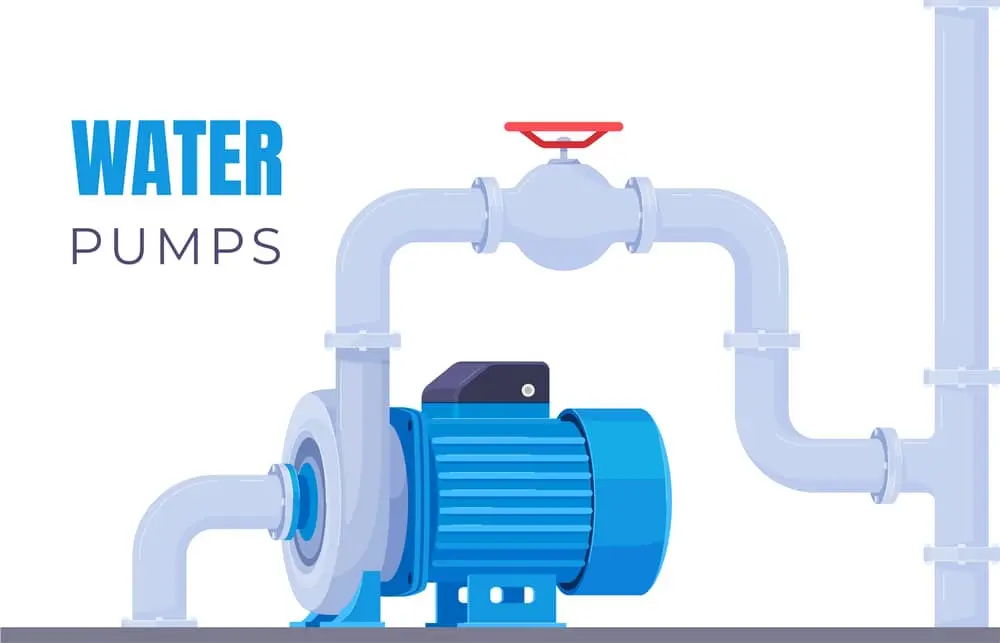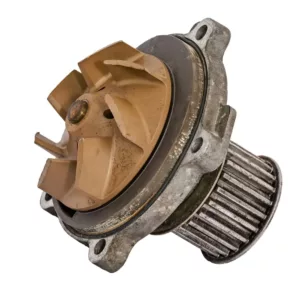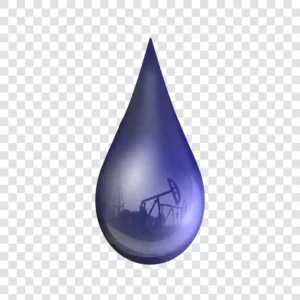
What Is The Main Cause of Leakage in Water Pumps?
What is the main cause of leakage in water pumps? In essence, that question always lingers in the minds of many people who use these essential machines throughout numerous industry setups. Water pumps that play an important role in our daily operations are unsung heroes in areas such as agriculture, manufacturing, and even our homes. Still, even failure, especially by leaking, might result in a chain reaction. This article looks into what is in the pump that causes leaks. This will examine their causes and identification, correction, and prevention strategies. Okay then, let’s open up that knowledge tap and bring on those understandings!
Understanding Water Pump Mechanics
The Core of Water Pumps: How They Work
At its core, a water pump’s job is simple yet vital: transporting water from one point to the other. It sucks in water with a pressure difference filling up water inside the system and pushing it away through some specific direction. Water pumps as they come up.
Centrifugal Pumps: They are the most prevalent ones in business entities. They employ rotating impellers, which create thrust towards moving the water.
Submersible Pumps: This is why they are usually called deep well pumps and are common in sump pumps and wells. They function underwater.
Positive Displacement Pumps: These pumps are ideal for handling fluids with a high viscosity, and they move a set volume every cycle.
This understanding tells us why there are lots of leaks that may lead to destruction.
Identifying the Main Causes of Leakage in Water Pumps
When it comes to understanding what is the main cause of leakage in water pumps, it is similar to solving a complicated riddle. Every one of these works depicts a single element that can cause the same annoying disease.
The Usual Suspects: Common Leakage Issues
Seal Breakdown: A worn or faulty seal is the main cause. These seals do not leak due to age; however, they can allow leaks over time.
Corrosion and Wear: Exposure of pump components to water, especially that which is either chemically treated or comprises contaminants, causes corrosion and leakages.
Incorrect Installation: At times, the causes are actually related, albeit indirectly, to the way the pump is set up. This makes it possible to escape water through unfit joints, misplaced elements or parts.
Digging Deeper: Underlying Causes of Leakage
Material Fatigue: The weakened, brittle or cracked gaskets, seals or hoses used in the pump over time lead to leakage.
Operational Stress: Leakages can result in pumps operating under conditions they have not been designed to work for, such as overpressure and hot temperatures.
Maintenance Lapses: Regular maintenance is key. The neglect could easily translate from a small problem into significant leaks.
This marks the beginning of the process that would help solve the leakage predicament. Watching out for these variables allows one to tackle problems before they escalate into bigger problems. Signs of a failing pump shall be discussed in further detail, as well as how to avoid it and what to do when it becomes too weak.
How Do I Know If My Pump Seal Is Bad?
Figuring out if your pump seal has gone rogue can sometimes feel like playing detective. You know something’s wrong, but what? The answer often lies in the subtle yet telltale signs of a failing pump seal.
Clues Pointing to a Seal on the Edge
- Unusual Leakage: The first and most obvious sign is unexpected moisture or water pooling around the pump. A healthy seal keeps things watertight; a failing one, not so much.
- Noise Changes: Listen to your pump. Sounds of grinding or whirring beyond the usual hum suggest the seal struggles to maintain its integrity.
- Decreased Efficiency: If your pump seems to work harder than usual to reach the same results, the seal’s decline might be the culprit.
So, how do I know if my pump seal is bad? Keep an eye, or rather an ear, out for these changes. A compromised seal doesn’t just mean a leak; it can impact the entire pump’s performance. It can raise wear and tear on other components, spiraling into more extensive and costly repairs. Catching and addressing a failing seal early can save a lot of hassle and keep your pump running smoothly for longer.
Can a Leaking Water Pump Be Fixed?
Confronted with a leaking water pump, the big question looms: can a leaking water pump be fixed? However, the good news is that in most instances, the answer is an emphatic yes. However, the pathway that you will take in dealing with repairs depends on the gravity of the failure as well as how comfortable you are with making do-it-yourself repairs.
Exploring Repair Options
Seal Replacement: It is quite usual that a leak comes as a result of a bad seal. A simple solution is replacing it.
Tightening Connections: This can just involve tightening loose bolts and fittings.
Component Replacement: If some minor problem occurs, then you may need to change worn-out parts like seals or hoses for more serious issues.
DIY or Call the Pros?
DIY Approach: Do-it-yourselfers might consider taking up these issues themselves as a way of saving some money on the repairs.
Professional Services: Get professional pump repair services if you have any doubts or complex problems to fix. More often than not, they are experts who can even discover and repair defects better than others.
When Should I Replace My Water Pump?
Decision-making on replacing your water pump is necessary to ensure proper functioning. So, when should I replace my water pump? However, it is possible to decide when to embark on this mission by taking note of certain signals.
Signs It’s Time for a New Pump
- Age Factor: Like all machinery, water pumps have a lifespan. If yours is reaching the decade mark, it’s time to consider a replacement.
- Frequent Repairs: If repairs are becoming a regular event, it’s a sign that your pump is on its last legs.
- Reduced Efficiency: Noticeable drops in water pressure or increased energy consumption can indicate that your pump is struggling.
The Benefits of Timely Replacement
- Improved Reliability: A new pump means fewer breakdowns and disruptions.
- Enhanced Efficiency: Modern water pumps often offer better performance and energy efficiency, directing to cost savings in the long run.
Is It Bad If Your Water Pump Is Leaking?
Is it bad if your water pump is leaking? Absolutely. Never ignore a leak however tiny it may seem. This is similar to raising a red flag, indicating potential bigger problems in the future. Leaks can grow rapidly, resulting in water damage, higher operating costs, and even pump collapse. In the industrial environment, this may also translate into costly shutdowns and damages. It can cause water damage, thus leading to unnecessary expenditure in a house. Prompt action on a leak is not merely curative but also preventive. The saying “better to be safe than sorry” is always true.
Preventative Measures and Maintenance
To solve this important question: “What is the main cause of leakage in water pumps?”, the key measure is prevention. You must regularly service your water pump since it will lessen the chances of leakages on the water pipe and extend the service life of it.
Essential Maintenance Tips
Regular Inspections: In the same way, regularly inspecting your pump is like a thorough check-up. The first inspection is for the worn out, corroded or damaged parts.
Seal Monitoring: Ensure you regularly check the pump’s seals. They usually exhibit signs of tear and leakage.
Lubrication: Lubricate all secure moving parts fully. This simple measure will go a long way in saving most of the wear and tear.
Keeping It Clean
Clean Components: Debris and dirt may result in eroding components of concrete structures that ultimately affect their performance eventually. Maintaining your pump and surrounding areas often prevents problems before they become issues.
Water Quality Check: You must monitor for corrosion and deposit whenever you pump chemicals or untreated/dirty water.
Scheduled Professional Maintenance
Experts on Call: While DIY checks are essential, having a professional inspect your pump periodically can offer a more thorough analysis.
Calibration and Alignment: Professionals can ensure everything is calibrated correctly and components are aligned, reducing the risk of leaks.
Understanding Leakage Risks
- Knowing the Enemy: Understanding what is the main cause of leakage in water pumps empowers you to take proactive steps in maintenance.
- Tailored Approach: Different types of pumps require different maintenance strategies. Tailoring your approach can make a big difference.
Remember, prevention is always better than cure. Regular maintenance not only keeps leaks at bay but also ensures your pump operates efficiently, saving you time and money in the long run. A well-maintained pump is reliable and efficient, and that’s a peace of mind worth investing in.
What Is The Main Cause Of Leakage In Water Pumps: Sealing the Deal
Along this road, as we seek the answer “What Is the Main Cause of Leakage in Water Pumps?”, we have discovered a bunch of information. This has taken us through the complex field of water pump monitoring, from interpreting the symptoms of a bad seal to knowing whether it requires a repair or change. The key takeaway? However, proactive maintenance and timely repairs go beyond recommendations; they are a must. By constantly monitoring your water pump, you can prolong its life and keep it working efficiently.



